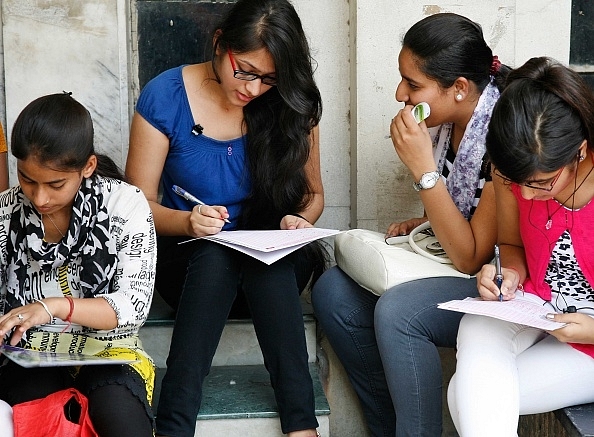Culture
No Indian University Among World’s Top 100. Four Things We Can Do To Build Better Universities
- India, with a population of more than a billion people, seems strangely content with not having even one of its universities among the global top 100.
- But, such a poor showing cannot surprise anyone for the Indian education sector is strangulated by bad regulation and excessive government interference, and generally dismissive of private enterprise.

Students at Delhi University.
India’s leading university, Institute of Science, Bangalore, has slipped two places in the latest QS World University Rankings 2016-17, released today (Tuesday).
It was ranked 152 on the elite list of educational institutions globally. The Indian university’s global ranking last year was 147 - making it among the top 150 universities in the world.
QS research head Ben Sowter said that this year’s rankings imply that levels of investment are determining who progresses and who regresses.
For a country of billion-plus people, India seems strangely content with not having even one of its universities among the global top 100. But, such a poor showing cannot surprise anyone for the Indian education sector is strangulated by bad regulation and excessive government interference, and generally dismissive of private enterprise.
Here are four problems that are holding back the flowering of truly world-class institutes in India.
First, the focus must shift to outputs instead of inputs. Universities and colleges should be judged by the output they produce, not the money they can put in. The regulatory agencies should strengthen the accreditation system and relax the approval process.
Second, urban planning laws combined with land requirements for providing education do more harm than good. Cost and availability of land push new universities out of the cities, creating a disconnect between the students/faculty and the surrounding residents. Universities should become a centre for community interaction, citizen engagement, and learning. Alternate laws can incentivise institutes to be set up in downtown areas.
Third, the affiliation system limits the scope of private education. By design, the system ensures substandard quality in non autonomous private colleges. Private colleges should not require an affiliation. They should design their own curriculum and forge partnerships to reduce the burden of conducting exams, inviting admissions etc. Till the time this is allowed, private colleges should be allowed to choose affiliating universities based on the curricular requirements, not geographical constraints.
Fourth, charity has not yet evolved to give higher education the attention it deserves. Unlike many institutions in the US, where individual philanthropic efforts led to the creation of world’s leading universities, charity for universities is nascent in India. The government should allow for profit educational institutes and tax their revenue. These taxes can be used to finance public and non-profit institutes. If quality institutes can provide an alternate to students seeking admission in foreign countries, it will also save precious foreign exchange for the country.
Support Swarajya's 50 Ground Reports Project & Sponsor A Story
Every general election Swarajya does a 50 ground reports project.
Aimed only at serious readers and those who appreciate the nuances of political undercurrents, the project provides a sense of India's electoral landscape. As you know, these reports are produced after considerable investment of travel, time and effort on the ground.
This time too we've kicked off the project in style and have covered over 30 constituencies already. If you're someone who appreciates such work and have enjoyed our coverage please consider sponsoring a ground report for just Rs 2999 to Rs 19,999 - it goes a long way in helping us produce more quality reportage.
You can also back this project by becoming a subscriber for as little as Rs 999 - so do click on this links and choose a plan that suits you and back us.
Click below to contribute.
Latest